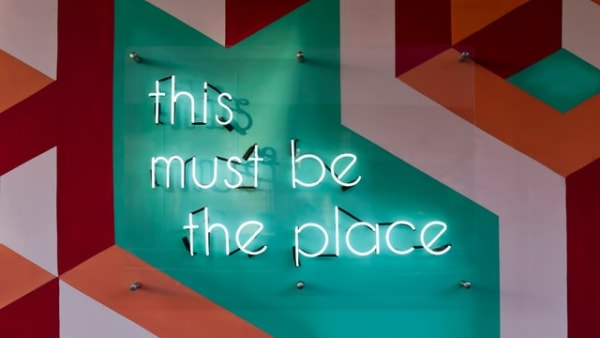The world of recruitment is increasingly candidate-led. It's no longer the case that an employer can put a decent salary on the table and expect it to be enough to attract top quality employees.
Today's job seekers have higher expectations, and base their decisions on a broad range of factors - not least, the impression you give throughout the recruitment process.
With that in mind, employers need to pay close attention to their candidate experience strategy. Not only to source and retain top talent, but to keep company reputation and profitability intact, since an applicant's perception of your business can have wide-ranging implications. Creating a positive experience for candidates is a must.
What is a positive candidate experience?
For a candidate, recruitment is a journey similar to that a customer embarks on when deciding whether to buy from or work with a business. They encounter a series of touchpoints throughout the process that leave a lasting impression, whether positive or negative.
These touchpoints start with your careers pages or job adverts, and continue with application, screening and interviews, all the way through to onboarding.
Combined, this makes up the candidate experience. At each stage, they're building a picture of how your business operates, how well you communicate, your brand culture and values, and whether all of this stacks up to their expectations.
Their hiring process journey can be a deciding factor when it comes to job acceptance, but candidate experience is not applicable to successful applicants alone. Unsuccessful candidates are judging your business to the same degree, and if their experience is a negative one, it can burn bridges and result in word of mouth damaging to your reputation.
In short, the importance of creating a positive candidate experience should not be underestimated by any company looking to improve their hiring process.
Why is a positive candidate experience important for a company?
1. Hiring is a business priority
For many businesses, recruitment is a top priority. To keep the ball rolling, and rolling successfully, employers need to innovate.
The best candidates want to see more than a job description and salary. They want to be shown opportunities for development and growth. They want to work for companies that have a clear and commendable mission, that align with their own values, and that offer the chance to make a real difference.
All of this can be communicated in the candidate experience, through clear messaging, and a focus on culture fit and potential rather than experience alone.
2. Sourcing quality candidates is a challenge
Finding the ideal candidate is no easy task, and it's made even harder with a bad candidate experience. The most talented applicants are not short of employment options, and if your recruitment approach falls below expectation, they'll take their skills elsewhere. They're also unlikely to consider you again in the future.
To stay competitive, you want the best people on your team. To get them, you need to make yourself an attractive prospect with the best candidate experience possible.
3. Candidates share their stories
One of the reasons recruitment has become so candidate led is that our digital world has facilitated it. Many job seekers actively share their experiences online through sites like Glassdoor, rating employers for the benefit of others.
As much as you're assessing each applicant in turn, they're doing their own research to determine if you're a business deserving of their time. If you have a historically bad reputation in terms of recruitment, they may not even submit an application in the first place, so you could end up missing out on a large chunk of the talent pool.
4. Brand value
The way you treat a candidate throughout the recruitment process doesn't just affect their opinion of you as an employer. It also impacts how they view your brand as a whole.
If you have 50 applicants that also fall into your target market, and each of them has a bad experience, you're distancing 50 potential customers. Not only that, social media gives unhappy candidates the power to seriously devalue your brand.
With a good candidate experience, the reverse is true. Even unsuccessful applicants can become your biggest brand advocates if they're treated in a way that exceeds expectation.
5. Referral value
Referral value can work in two ways. It can bring you more quality candidates, and more custom.
In the first instance, someone that's had a positive recruitment experience with you, successful or not, is likely to recommend you as a potential employer to friends and colleagues.
In terms of custom, positive word of mouth is a powerful marketing tool. By providing the best candidate experience you can get people talking, encouraging brand engagement and boosting your bottom line.
Identifying poor candidate experience in your hiring process
A poor candidate experience can tank your company's reputation and make it harder to hire top talent. Here's how to identify poor candidate experience in your hiring process—and what you can do to fix it.
- Do you have a high rate of candidates ghosting you?
- Are they leaving negative reviews on Glassdoor?
- Are your offers being rejected?
These are all signs that your company isn't providing a good candidate experience.
A poor candidate experience can cost you top talent. In fact, 69% of job seekers say they would not reapply to a company after a bad interview experience. So it's important to identify the signs of a bad candidate experience—and take steps to fix it.
How can you improve candidate experience?
Every business is unique, and as such should take a unique approach to recruitment that's reflective of company needs, values and working culture.
That said, when planning a candidate experience strategy there are techniques that can be applied across the board to help you make the right impression:
Positive candidate experience ideas
- Create engaging content- communication throughout the recruitment process is all too often generic, and fails to capture the real heart of a business. Bring your marketing team on board to ensure brand tone of voice carries through to all candidate communication, from job ads to rejection letters.
- Make life easy for the applicant- the best candidate experience starts with a simple application process. Keep it short, give clear instructions and make it mobile friendly. Acknowledge every application received, and add a personal touch by using names instead of reference numbers.
- Communicate clearly and often - one of the biggest prompts of a bad candidate experience is a lack of communication. For starters, you might share details for the recruiting process on the job specification. Next, you should keep applicants informed of their progress as soon as possible, even when that progress has come to an end. For rejected candidates, take the time to explain why their application was unsuccessful; it can mean a lot to people who on their job search.
- Tell candidates what to expect - give detailed information on aptitude and personality tests, explain assessment days in full, and let them know how interviews will run. Candidates think better of employers that empower them to do well and have a clear job application process.
- Use technology - automation and AI are making it easier to improve candidate experiences without costing more time or effort. Automating follow up emails and streamlining your process has never been easier with recruitment platforms and tools that utilise the latest innovations in technology. Investing in the right recruitment apps could certainly help you.
- Get candidate feedback - A candidate experience survey can be an effective way to collect feedback from both your new hires and rejected candidates. You should also consider keeping your Glassdoor account up to date and reading any feedback you might receive on there.
Like every business operation, a good candidate experience strategy should be constantly refined. With that in mind, it's well worth considering adding applicant surveys to your candidate experience checklist.
Asking those that matter most how you can improve is key to getting it right. It also shows you value their opinion, adding to their positive impression of you as both an employer and a brand.







